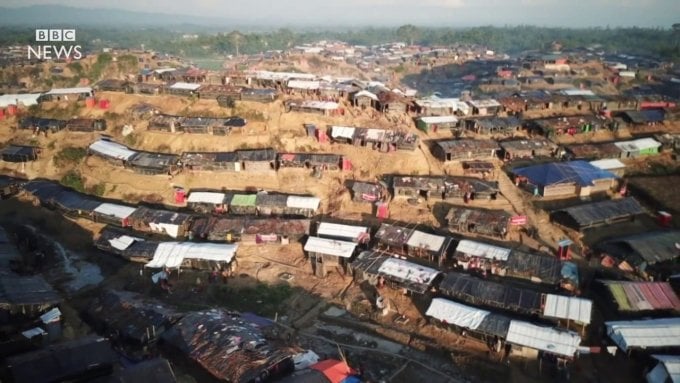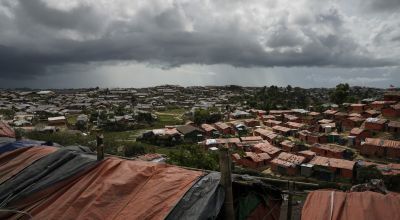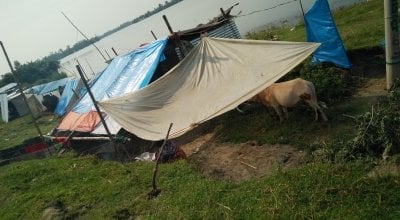
Read our 2024 annual report

Knowledge Hub
Responding to the world’s fastest growing refugee crisis
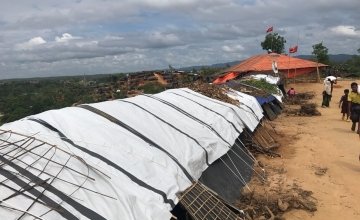
Since August 2017, targeted violence against the Rohingya in Myanmar’s Rakhine State has forced over 700,000 people – almost half of whom are children – to seek safety in neighbouring Bangladesh. As the number of Rohingya refugees continues to rise, this is now the world’s fastest growing refugee crisis.
Crossing the border
Day after day, thousands of Rohingya refugees arrive in Bangladesh in a steady stream. Men, women and children – traumatised and often separated from their families – cross the border in search of safety and refuge. After days of travelling, they arrive with almost no belongings and set up camp wherever possible. Most Rohingya refugees are relieved to have reached safety however life in Bangladesh’s refugee camps isn’t without its challenges.
Where are Rohingya refugees being hosted?
Most Rohingya refugees are concentrated in the Cox’s Bazar district on the southeast coast of Bangladesh. Cox’s Bazar is best known for its idyllic beaches, however it's one of the poorest district in Bangladesh and the villages where most of the camps are located are among the most socially deprived in the country. The host community in Cox’s Bazar have been generous and gracious in welcoming the Rohingya refugees but they are under increasing strain as the influx continues. The price of basic goods such as fire wood has more than doubled due to the increased demand.
Inside the refugee camps
What began as a cluster of informal settlements on a hillside in Cox’s Bazar has developed into one of the world’s largest refugee camps, hosting almost a million Rohingya refugees.
Concern started working in the camp in September 2017 and was among the first humanitarian responders in the Cox’s Bazar district. Concern’s initial emergency projects responded to the immediate needs of the refugee population by providing much needed food items and later, with funding from DEC, we began distributing non-food-items.
Our services have since expanded and, in partnership with UNICEF, we are now providing nutrition services to women and children in makeshift settlements throughout seven locations. We have screened a total of 325,000 Rohingya children under five for malnutrition and last week alone, we screened over 18,000 children. Staggeringly, over 1,000 of the children screened were identified as malnourished – 152 of them severely so.
Threats posed by upcoming monsoon
The Cox’s Bazar refugee camps are at capacity and as the influx of Rohingya refugees continues, overcrowding is becoming a real issue. The camp’s basic services are under huge pressure and the close proximity of shelters increases the risk of illness and disease.
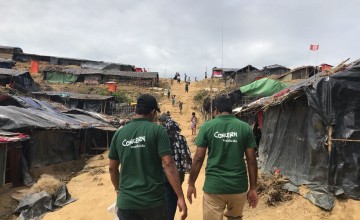
What’s more, the coastal region of Cox’s Bazar is set to be badly affected by the impending monsoon season. It’s predicted that landslides and flooding will leave over 100,000 people in grave danger. Aid agencies and the Bangladesh government are working in partnership to map flood risks and are adapting their operations to ensure the protection of the vulnerable camp population. Concern is working around the clock to ensure that nutrition services will be provided to women and children and women during the predicted flooding.
You can help Rohingya refugees
Please help us continue our life-saving work with Rohingya refugees in Bangladesh.



